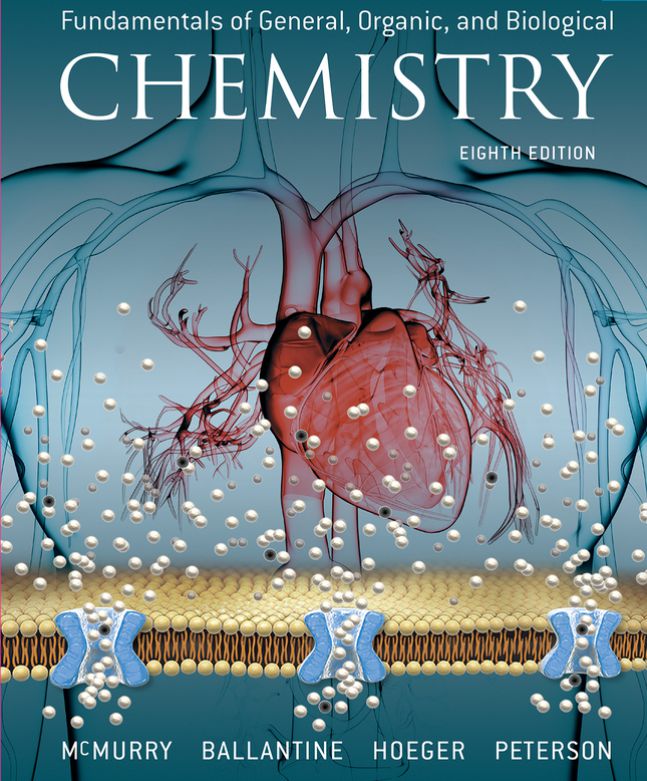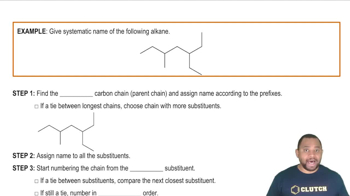Textbook Question
Alkynes undergo hydrogenation to give alkanes, just as alkenes do. Draw and name the products that would result from hydrogenation of the alkynes shown in Problem 13.25.
<IMAGE>
660
views

 Verified step by step guidance
Verified step by step guidance



Alkynes undergo hydrogenation to give alkanes, just as alkenes do. Draw and name the products that would result from hydrogenation of the alkynes shown in Problem 13.25.
<IMAGE>
What do the terms saturated and unsaturated mean?
Draw an example of a saturated four carbon compound and an unsaturated four carbon compound.
What is resonance and why is it important in aromatic compounds?
What prefixes are used in naming the following?
a. A 1,3-disubstituted benzene
b. A 1,4-disubstituted benzene
Write structural formulas for compounds that meet the following descriptions:
a. A 6-carbon alkene whose longest chain is 4 carbons in length (three possibilities)